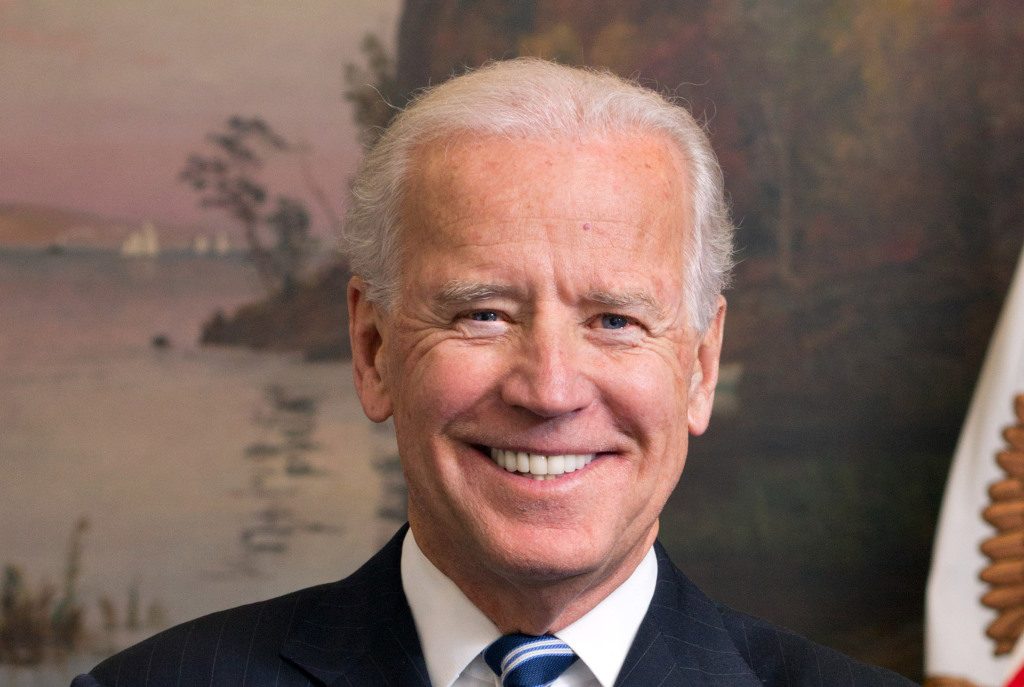Biden Needs a Smarter Jobs Platform
The presidential hopeful doesn't have a jobs program tailored to the 21st Century.
Joe Biden’s Build Back Better campaign theme is a welcome centrist theme that could help him peel away former Trump supporters, but his people need to sharpen their ideas about job creation.
Wisconsin, a state long on manufacturing, has been pushing job creation for 25 years, and its leaders learned a thing or two as they worked to change from a laggard state on GDP growth to a winner.
Biden is pushing manufacturing growth as his core jobs initiative, long after Wisconsin concluded that it had to diversify away from that old-line sector. That’s because manufacturing is going the way of ultra-efficient farming; both are getting so efficient that they need ever fewer people to make all the products we can stuff in our two-car garages and mini-storage units and all the food to make us plumper. Less than 2% of U.S. workers are in agriculture, and only 8% percent are now in manufacturing.
Manufacturers are automating; they are using lean disciplines to streamline their operations; they are using AI to eliminate constraints; and they have been out-sourcing. The country has lost five million factory jobs since 2020; Wisconsin has dropped more than 100,000.
At the same time, before the pandemic. Wisconsin had dropped its unemployment rate to 2.9% — a wonderfully low level that amounts to full employment. How quickly we forget that jobs were going begging in 2019.
So, where did our job growth come from? At the state’s economic summits of 2000-2003, the late UW Economist Don Nichols identified business services as a high-growth sector. It’s mostly based on powerful new IT technologies. Epic, Fiserv and Metavante are several examples of big employers that grew fast in that sector. There are also thousands of smaller IT firms.
Good-pay job growth also soared in healthcare, insurance and education. Retail and hospitality provided low-pay growth.
The point is that Biden, who will soon be president-elect, needs a more balanced economic strategy.
His job one will be to get the coronavirus epidemic under control. The economy will be stuck in reverse or neutral until that happens. He will do the opposite of the current president; instead of disrespecting and disregarding our best and brightest doctors and scientists, Biden will embrace and galvanize them.
Biden’s team has identified one strategy that will both strengthen our manufacturing base and our national security – reshoring of critical industries like pharmaceuticals, electronics and defense systems and components. Whole supply chains have moved to China, with whom we have stiffened relationships.
We need not be enemies of the Chinese, but we need to be fierce competitors of their subsidized industrial complex. It is inevitable that we will be major adversaries. Trump’s friendships with Chinese leaders and his tariffs did not get the trade imbalances fixed.
It will be a tall task to bring those supply chains back to the U.S. Heavy investments in business subsidies, R&D expenditures and big government contracts to businesses have to be part of the mix.
Biden’s stump speeches about reviving middle class jobs is pitch perfect for the times, but he needs to look beyond traditional manufacturing.
He also needs to understand that startup companies create most of the new jobs in America. Start talking about his game plan for those innovative American entrepreneurs who come from every segment of our society – often first-generation Americans.
His jobs agenda, if crafted more sharply, could win the day for the election and afterward.
John Torinus is the chairman of Serigraph Inc. and a former Milwaukee Sentinel business editor who blogs regularly at johntorinus.com.
If you think stories like this are important, become a member of Urban Milwaukee and help support real, independent journalism. Plus you get some cool added benefits.
Op-Ed
-
Unlocking Milwaukee’s Potential Through Smart Zoning Reform
 Jul 5th, 2024 by Ariam Kesete
Jul 5th, 2024 by Ariam Kesete
-
We Energies’ Natural Gas Plans Are A Mistake
 Jun 28th, 2024 by John Imes
Jun 28th, 2024 by John Imes
-
Milwaukee Needs New Kind of School Board
 Jun 26th, 2024 by Jordan Morales
Jun 26th, 2024 by Jordan Morales






















We must live in different universes. In the universe I live in, Wisconsin job growth has been the laughing stock of the country. Under the previous governor (“Wisconsin is open for business” and the bigger the bribe, the better the deal) job growth lagged far behind the rest of the country. That was the governor who negotiated a $43 billion dollar deal with Foxconn in spite of what economic experts estimated that it would take more than 30-40 years before Wisconsin would see a return on its investment if there ever would be one. Foxconn has a reputation for walking away from such deals after they bled as much from the local community as possible..
Joe Biden would be wise to use the “Wisconsin Model” as the way NOT to grow jobs. There are far more economically sound and fiscally responsible ways. He would be wise to cast his sights on Minnesota, whose job grow continues to out pace Wisconsin year after year after year. Minnesota invests in a world-class university system that consistently stokes the economic engine with innovations and venture capital. Minnesota invests in public transit systems that have generated $20 billion in investments in the Twins Cites alone. Minnesota invests in their healthcare system, which is one of the best, and least expensive in the country ( Minnesotans pay 30%-50% less fro healthcare than Wisconsinites.) Minnesota invests in their communities; quality K-12 public education is available throughout the state as is high-speed broadband internet connections. Minnesota invests in the environment so that clean water and air are not the exclusive domain of the very wealthy. Minnesota invests in small businesses, recognizing that the vast majority of new jobs are created by employers of 100 employees or less. The end result is when a corporation is looking for a new site, Minnesota offers the amenities corporations are looking for to draw young educated workers to join.
Wisconsin did the exact opposite. We have the sputtering economy to show for it. Bottom line, the most effective way to attract businesses in the global market, is to invest in the workforce, their education, their families, and their communities.